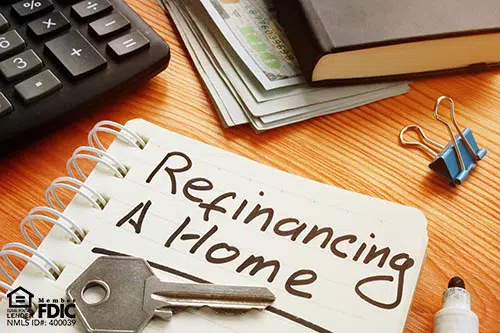As a homeowner, there are many reasons to consider refinancing your mortgage. It could get you a lower interest rate than your current loan or save you money on interest. You might refinance the loan into a shorter term so that it’s paid off several years earlier than your original mortgage loan. Your existing mortgage may have been an adjustable-rate mortgage that you want to flip to a fixed-rate mortgage or vice versa. Or, you may wish to leverage the equity on your home to make a large purchase or consolidate other debt.
Whatever the reason for refinancing your mortgage, keep in mind that costs are involved. In most cases, refinancing your mortgage could cost anywhere between 3% and 6% of the loan’s principal. You may also need to complete a few requirements, such as getting another appraisal, completing a title search, and paying for application fees on the new mortgage. Consider all these costs to ensure that refinancing your mortgage loan would be worth it. Let’s look at all these reasons individually.
Lowering Your Interest Rate
One of the most popular reasons to refinance a mortgage loan is to lower the interest rate on the existing loan. Some lenders say that a 1% reduction in interest could be enough to consider refinancing a mortgage loan. It is often best to refinish your mortgage loan if you get at least a 2% reduction.
You may have purchased your home while rate conditions were much higher, and since that time, market conditions have changed. Lowering the interest rate on your home will help you save money and also help you build equity faster in your home. The portions of the monthly payment that go towards your interest and principal payments will also be reduced.
Shortening your Loan’s Term
When market conditions lower interest rates on mortgage loans, this could be an opportunity to refinance. You may consider moving to a shorter-term loan without changing your monthly payment significantly. A shorter-term loan decreases the interest you will pay on the loan due to the shorter length of time you’ll be paying it back. Decreased mortgage payments depend on your loan’s original term and interest rate as well as the new loan’s term and interest rate. Several refinance calculators are available to help you estimate your savings and payment amounts are available online.
Converting an Adjustable-Rate or Fixed-Term Mortgage
Typically, ARMs will provide you with a lower interest rate than a fixed-term mortgage for the first few years of the loan. These loans have a fixed interest rate for several years and will vary by market conditions. The interest rate could fluctuate every year, going up or down. The instability of your interest rate and mortgage payments is an excellent reason to consider converting an ARM to a fixed term.
If you have a fixed-rate mortgage and interest rates are falling, you might consider the opposite route and convert it to the ARM. The loan will adjust to these changes, eliminating the need for you to refinance with each rate drop. Still, this could be risky as there’s no definite way to predict when interest rates will rise and fall. ARMs are generally a good idea for homeowners who don’t plan to stay in their homes for a long time.
Tapping Into Your Equity
All the reasons above are financially sound reasons to consider refinancing your mortgage loan. You will get a cash-out refinance if you want to tap into your home’s equity to pay for other debt or expenses. Remodeling your home, which would increase its worth, would be a good reason to get a cash-out to refinance. You may have other debt that you are paying at a higher interest rate, which you would like to consolidate at a lower interest rate, which is available through refinancing your home. There might be an upcoming expense, such as financing a child’s education, where other loan sources would incur a higher interest rate than home equity.
It’s always best to ensure you are running your numbers when considering whether it’s the right time to refinance. Here's a calculator to determine if refinancing your home can benefit you. If you are ready to refinance your mortgage, call our experts at NASB at 888-661-1982 or click here for more information.




